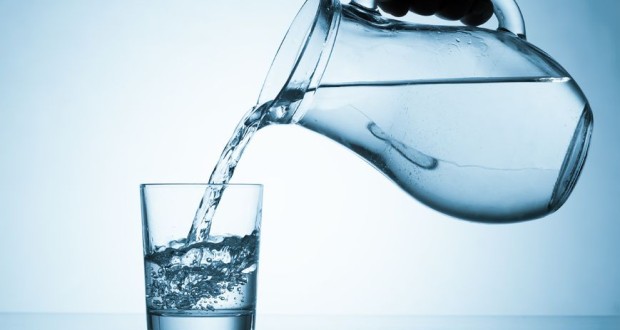Even if you’re not a medical professional, it’s pretty easy to guess the symptoms of dehydration. When running low on water, the mouth becomes noticeably dry and starts pining for water. Additionally, a person experiencing mild dehydration will likely encounter dry skin, headaches, dizziness, constipation and decreased amounts of urination. It may surprise you to learn, however, that the physical impact of dehydration extends beyond these common symptoms. A lack of water inside the body can have serious ramification for your waistline, face, mental health and energy levels.
Weight Gain – When the body becomes dehydrated, its metabolism (the speed at which it burns off calories) begins to slow down. A slower metabolism can make it harder for the body to expend its supply of calories, causing it to store excess calories as fat. Making matters worse is that the body can mistake water cravings for hunger pangs. As a result, a mildly dehydrated person can easily wind up indulging in junk food, a habit that inevitably leads to unwanted gains in weight.
Recent medical research has bolstered the link between dehydration and metabolic rate. Participants in a 2003 study were found to have a 30 percent faster metabolic rate after downing two glasses of water.
Fatigue – Your problems with energy (or lack thereof) might be partially related to your water intake. The link between dehydration and fatigue stems from the role water plays in nourishing and maintaining the body. At some point or another, you probably learned that the body is 70 percent water. If the body’s water levels drop even slightly below this threshold, it’s supply of key nutrients (including potassium and salt) likewise start to dwindle. Stripped of this vital fuel, the body cannot function at optimal capacity, causing feelings of weariness and lethargy.
This lack of water also manifests itself in your blood, which becomes slightly thicker than normal. Thicker blood is bad news for your heart muscle, as this organ must work harder than normal to push blood through the body’s veins. In order to perform this all-important task, the heart must make additional withdrawals from the body’s energy reserves. Consequentially, the patient may begin to feel sluggish and tired.
Pimples – This might take the honor for most surprising item on the list. On the surface, it would seem that linking poor water intake to facial blemishes would be a bit of a stretch. The picture becomes clearer, however, when impact of dehydration on the skin is taken into account.
The body uses its supply of water to moisturize the skin, keeping it smooth and flexible. Conversely, skin that has been inadequately moisturized can quickly become rough, and may even start to peel. The skin may start shedding dead cells at a faster clip, causing these discarded particles to pile up on the outer layer of the skin. With nowhere to go, the dead skin cells often find their way into the skin’s pores, where they combine with dirt and other bacteria to effectively clog these tiny openings. Clogged pores, or course, quickly balloon into full-fledge pimples.
An insufficient water intake can also cause the skin to become oversaturated with oil. The body’s sebaceous glands, which are tasked with keeping the skin sufficiently moisturized, can ramp up their production of oil in response to a lack of water. Unfortunately, this excess oil can have a counterproductive effect, mixing with other debris to clog pores and create pimples.
Anxiety and Stress – Anxiety and stress seem to go hand in hand – when you start dealing with one, the other probably isn’t that far behind. While both are often be triggered by external events beyond our control, these conditions can also result from our own poor choices. According to some studies, a body that is just a half liter deficient in water can experience a spike in cortisol, the hormone behind stress. Mild dehydration has also been connected to anxiety, courtesy of the University of Connecticut’s Human Performance Laboratory.
Lack of Focus – If you can’t seem to stay focused at the office, perhaps you should head over to the water cooler. Once again, the Human Performance Laboratory from the University of Connecticut provides ample evidence for this link. Specifically, UConn researchers found that women who were deprived of water had difficulty concentrating on simple tests. For the male participants, the outcome was somewhat different; dehydrated men in the study reported problems with memory, tension and alertness.
 Natural Knowledge 24/7 Educate yourself with nutrition, health and fitness knowledge.
Natural Knowledge 24/7 Educate yourself with nutrition, health and fitness knowledge.






